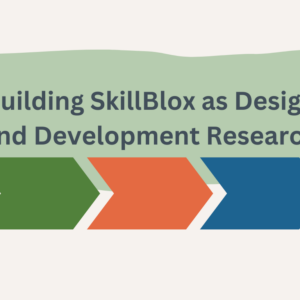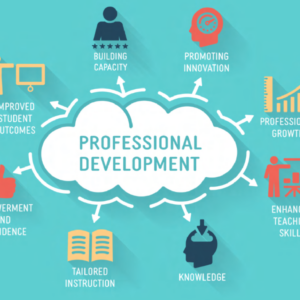By Priyanka Sharma, Catalina Gonzalez, Nicole Cabrera Holguin and Panote Nuchprayoon
Keys to Impact in Digital Navigator Services: Adaptability, Trust, and Awareness, a three-part blog series is a collaboration between the EdTech Center and the ExCITe Center at Drexel University to give voice to digital navigator programs that have rapidly innovated over the last year. Each blog features one of three components programs have identified as key to success in closing digital divides and digital, racial, and other inequities: Adaptability, Trust, and Awareness.
Over the last year the EdTech Center @ World Education, with funding from Walmart, has supported organizations across the country to pilot digital navigator services, providing adults with just-in-time supports for technology access and foundational digital skills. With input from Digital US partners, it has developed a digital navigators playbook and a hub for digital inclusion resources.
While the COVID-19 pandemic spotlighted deep digital divides in the U.S. and catalyzed investment in support for access to the internet, equipment, and the skills to use them, there will continue to be the need for Digital Navigators post-pandemic. Digital inclusion advocates have expressed that there is a lack of awareness of Digital Navigator programs and their deep impact in closing digital, racial, economic, and other inequities.
First, making community members who are digitally disconnected become aware of digital navigator services is a challenge. Programs have helped overcome this by developing partnerships with respected community institutions. Program Officer Christa Vinston of Rural LISC—an organization that helps integrate and fund Digital Navigator programs in rural communities—gave an example of how they trained a fire station and a cultural heritage center to make referrals to the Digital Navigator program in a rural community to reach more people. Vinston emphasized that by raising people’s awareness, communities can learn and help build a sustainable, social support safety net for those without technology education. Vinston added that Digital Navigators can become a formal part of job descriptions in diverse roles at more organizations moving forward so as to create spaces in communities that are better integrated with the daily lives of individuals.
Awareness must also be raised on the impact of digital navigator services. In order to advocate for investment in digital navigator services at a local, state, or national level, data tracking, impact measurement, and storytelling are important tools. The ExCITe Center at Drexel University and Digital Charlotte actively use social media to spread awareness and document the impact of its digital navigation services. “It is crucial to spread the word about your digital navigator services to reach potential beneficiaries, build awareness of the impact within the community, and develop buy-in and support from your local networks, funders, and allies. Don’t underestimate the power of storytelling!”, says Priyanka Sharma of EdTech Center at World Education Inc. and co-director of the Digital Navigator: Connect to Opportunity project. Statistics are key, such as one coming from the TechPak initiative between various organizations in Minnesota, including Literacy Minnesota, that has provided laptops, internet access, and training to over 500 Ramsey county residents. The initiative, funded through the CARES Act, has expanded now to distribute more than 2000 devices and has grown to include additional community-based organizations. Paolo Balboa, Program Manager at National Digital Inclusion Alliance (NDIA), encourages programs to share data on the number of individuals who have been supported and in what ways so that this can be utilized to reach out to funders and policymakers.
Despite the proliferation of Digital Navigator programs over the past year, supports for technology access and foundational digital skills will be needed for years to come to close persistent digital divides and the racial, economic, and other inequities that they exacerbate. As such, the EdTech Center @ World Education and the Digital US coalition it supports are committed to raising awareness of the continued need for Digital Navigator services and their impact, and of the organizations in diverse communities with capacity to scale impact if supported to do so.
This three-part blog series is based in part on interviews conducted by digital navigators Nicole Cabrera Holguin and Panote Nuchprayoon who are Co-op Workgroup students at Drexel University’s ExCITe Center working to inspire transdisciplinary research, discovery, and learning connecting technology and communities.
Digital Navigators: Connect to Opportunity project is supported by a generous grant from Walmart.




